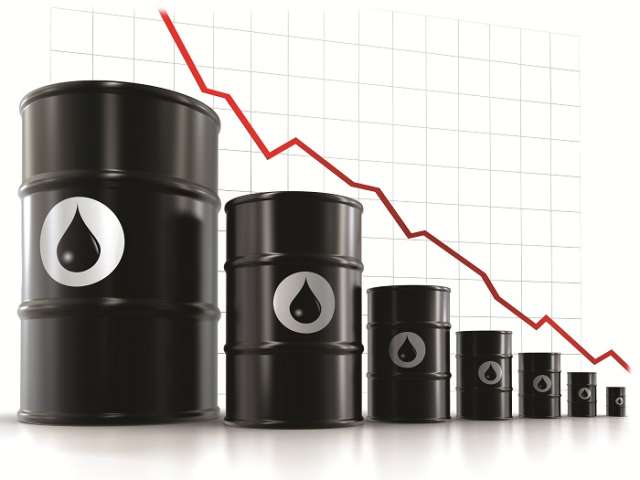Falling Oil Prices bring end to rally for the market

The Standard & Poor’s 500-stock index, a broad measure of the stock market, stayed in the red. Oil prices fell.
Trading was relatively quiet ahead of the Easter holiday weekend. U.S. markets will be closed Friday for Good Friday.
“Volume is very light today, probably the lightest that we’ve had in a month,” said Quincy Krosby, market strategist at Prudential Financial. “That can skew markets in either direction.”
The S.&P. 500 index slipped 0.77 points, or 0.04 percent, to 2,035.94. The Nasdaq added 4.64 points, or 0.1 percent, to 4,773.50. The Dow rose 13.14 points, or 0.1 percent, to 17,515.73.
Coming into this week, the stock market had mounted a five-week string of gains that helped reverse some of Wall Street’s hefty losses from the market’s stumbling start to 2016.
The market’s rebound gained momentum last week, when the Federal Reserve announced that it would slow the pace of interest rate increases this year, citing worries about the global economy.
Position of the Dow Jones industrial average at 1-minute intervals on Thursday.
But this week, some Fed bank presidents made public comments that suggested the pace of rate hikes might not be slowed after all.
One Fed official, James Bullard, president of the St. Louis Fed, pointed to a broadly unchanged economic outlook and said a case could be made for a possible rate hike next month if the next round of jobs data exceed official targets.
The remarks drove up the value of the dollar against other major currencies, pushing down commodity prices. It also helped point stocks lower from the get-go on Thursday, as investors fretted over the impact on U.S. exports.
“It makes the market nervous and it suggests that perhaps there’s dissent at the Federal Reserve,” Mr. Krosby said.
A government report indicating that orders to U.S. factories for long-lasting manufactured goods fell 2.8 percent in February didn’t help.
Financial stocks took the biggest hit. The sector pared some of its early losses, but still ended the day down the most among the S&P 500 index’s 10 sectors, 0.7 percent.
Prudential Financial lost $2.07, or 2.8 percent, to $70.76, while Morgan Stanley shed 34 cents, or 1.3 percent, to $24.93. Wells Fargo fell 86 cents, or 1.7 percent, to $48.90.
The decline in commodities also hurt some energy companies, including Williams. The natural gas producer fell the most among stocks in the S&P 500 index, tumbling 91 cents, or 5.6 percent, to $15.35.
Average for some Federal Home Loan Mortgage Corp. securities.
Several companies also moved on earnings news. Sportsman’s Warehouse sank 11.3 percent after the company released a disappointing forecast. The stock shed $1.56 to $12.23.
Others fared better. Signet Jewelers rose 2.9 percent after the retailer posted solid quarterly results and its annual profit forecast was better than expected. The stock added $3.41 to $121.42.
KB Home also reported strong first-quarter results. The homebuilder gained 83 cents, or 6.3 percent, to $13.93. And PVH, owner of the Calvin Klein and Tommy Hilfiger brands, rose $6.66, or 7.6 percent, to $94.29 after it reported better-than-anticipated quarterly profit and revenue.
Meanwhile, Office Depot and Staples vaulted on mounting optimism that a court will allow the office supply competitors to combine even though regulators oppose the deal. Office Depot gained 57 cents, or 9 percent, to $6.91. Staples climbed 71 cents, or 7 percent, to $10.76.
Stock markets in Europe posted sizable losses.
Germany’s DAX dropped 1 percent, while France’s CAC-40 fell 3 percent. Britain’s FTSE 100 slid 1.3 percent. In Asia, Hong Kong’s Hang Seng slid 1.3 percent. Sydney’s S&P ASX 200 fell 1.1 percent, while Seoul’s Kospi was off 0.5 percent. Tokyo’s Nikkei 225 shed 0.6 percent.
After a period of sustained gains, oil prices closed lower again as concerns over excess supplies returned following the latest U.S. stockpiles data. Benchmark U.S. crude fell 33 cents, or 0.8 percent, to close at $39.46 a barrel in New York. Brent crude, the benchmark for international oils, slipped 3 cents to $40.44 a barrel in London.
Wholesale gasoline rose a penny to close at $1.47 a gallon. Heating oil slipped a penny to close at $1.20 a gallon. Natural gas added a penny to close at $1.81 per 1,000 cubic feet.
Gold fell $2.40 to $1,221.60 an ounce. Silver slid 7 cents to $15.20 an ounce. Copper lost a penny to $2.23 a pound.
Bond prices fell. The yield on the 10-year Treasury note rose to 1.90 percent from 1.88 percent late Wednesday. The euro was down to $1.1177 from $1.1183, while the dollar rose to 112.81 yen from 112.39.















































